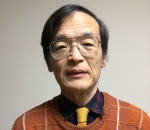↓ ↓ ↓

The new TV show “SHOGUN” is very popular now. I read about it in the Nikkei newspaper. I remember reading the original “SHOGUN” book many years ago, when the first TV show came out. This new version is even more popular!
I was interested, so I checked both the Japanese Nikkei article and the English CNN article. I found some interesting differences between them:
- CNN talks a lot about how good the story and writing are. The Nikkei doesn’t mention this much. Maybe because Nikkei focused more on Japanese culture than on the writing.
- The Nikkei says CNN really liked how “Japanese” the show feels. But actually, this was just what the show’s producer said about their own show – like an advertisement.
- CNN likes how the show has a strong female character, even though the story is set in feudal Japan. But the Nikkei article says this character shows how women are becoming stronger in Japan today.
The show is very successful – it won 18 Emmy awards! I’m not saying the show is bad. I just want to show how Japanese news sometimes reports things differently from English news. The show is popular because it’s well-made, not just because it’s about Japan.
It was fun to compare the Japanese and English articles. I hope you’ll keep studying English so you can read news in both languages too!
See you next time, Jiro
私立学校に英語教師として勤務中、40代半ばに差し掛かったころ、荒れたクラスを立て直す策として、生徒に公言して英検1級に挑戦することを思い立つ。同様の挑戦を繰り返し、退職までに英検一級(検定連合会長賞)、TOEIC満点、国連英検SA級、フランス語一級、スペイン語一級(文科大臣賞)、ドイツ語一級、放送大学大学院修士号などの成果を得る。
アメリカで生徒への対応法を学ぶ為に研修(地銀の助成金)。最新の心理学に触れた。4都県での全発表、勤務校での教員への研修を英語で行う。現在も特別選抜クラスの授業を全て英語で行っている。「どうやって単語を覚えればいいですか?」という良くある質問に答える為、印欧祖語からの派生に基づく「生徒には見せたくない語源英単語集」を執筆中。完成間近。常日頃洋書の読破で様々な思考にふれているが、そうして得た発想の一つを生かして書いた論文がコロナ対策論文として最近入賞。賞品の牛肉に舌鼓をうっている。元英検面接委員


